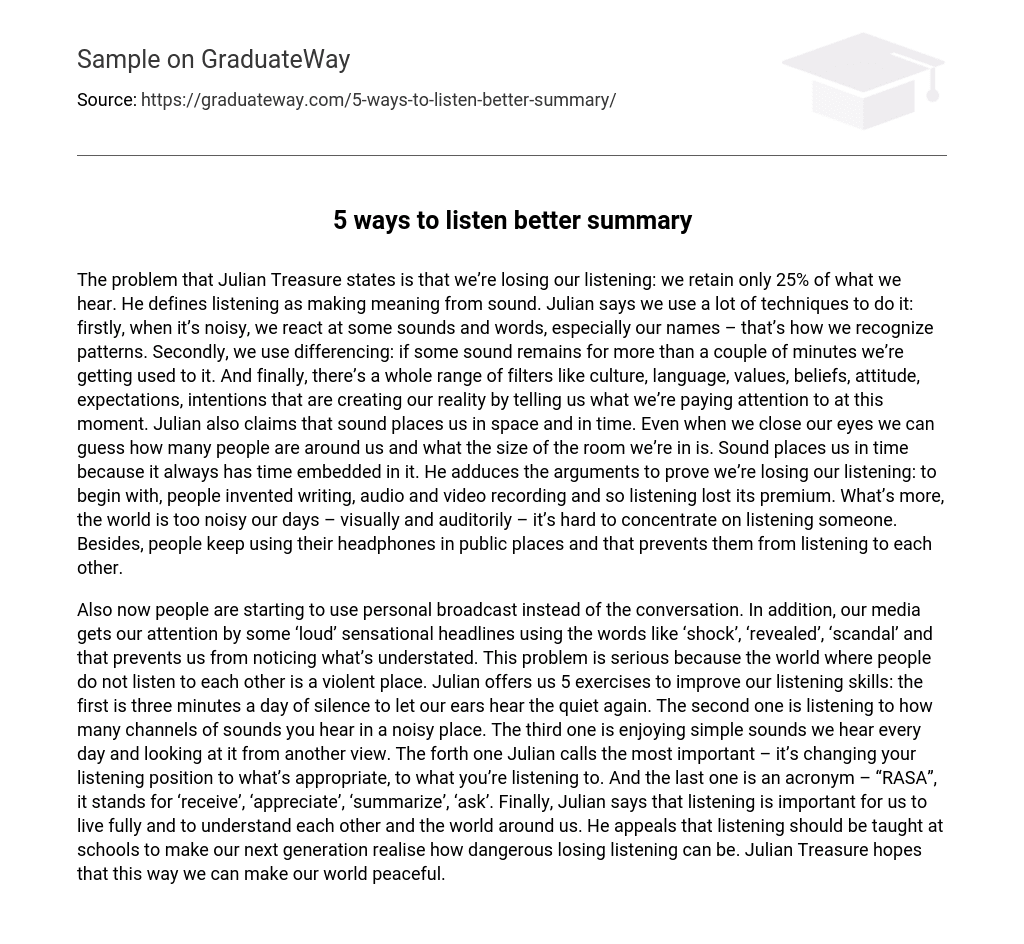Julian Treasure points out that the issue at hand is our diminishing ability to listen, as we only retain 25% of what we hear. According to Julian, listening involves deriving meaning from sound. He explains that we employ various techniques to accomplish this. Firstly, in noisy environments, we react to certain sounds and words, particularly our own names, allowing us to recognize patterns. Secondly, we utilize the process of differencing, adjusting to sounds that persist for more than a couple of minutes. Lastly, several filters such as culture, language, values, beliefs, attitude, expectations, and intentions shape our reality by determining what we focus on in the present moment. Julian also points out that sound situates us in both space and time. Even with our eyes closed, we can estimate the number of people around us and the size of the room we are in based on sound. Sound is also inherently linked to time. Julian provides evidence to support the idea that we are losing our listening skills. Firstly, the invention of writing, audio recordings, and video recordings has diminished the value placed on active listening. Moreover, today’s world is overwhelmingly noisy visually and auditorily, making it challenging to concentrate when listening to others. Additionally, individuals frequently use headphones in public spaces, hindering their ability to listen to one another.
Nowadays, people are increasingly opting for personal broadcasting instead of engaging in conversations. Additionally, the media captures our attention through sensational headlines that utilize “shock,” “revealed,” and “scandal,” diverting our focus from what is understated. This issue is significant because a world where individuals fail to listen to one another is a violent one. Julian Treasure presents five exercises aimed at improving our listening skills. The first exercise involves dedicating three minutes each day to silence, allowing our ears to reacquaint themselves with tranquility. The second exercise entails consciously acknowledging the multitude of sounds present in a noisy environment. The third exercise encourages us to appreciate the simplicity of everyday sounds from a different perspective. Julian deems the fourth exercise as the most crucial, emphasizing the importance of adjusting our listening position based on the context. The final exercise is summarized by the acronym “RASA,” which stands for “receive,” “appreciate,” “summarize,” and “ask.” In conclusion, Julian stresses the significance of listening for living a fulfilling life, fostering understanding among individuals, and comprehending the world around us. He advocates for the inclusion of listening as a taught skill in schools to ensure future generations grasp the dangers associated with losing this ability. Julian Treasure envisions this approach as a means to attain global peace.





